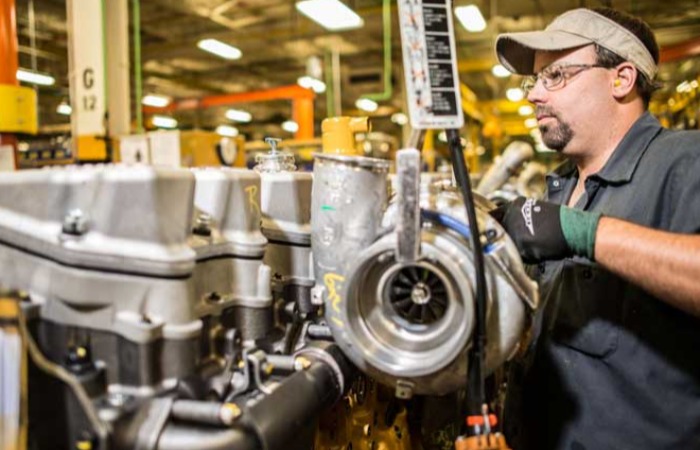
Are Advanced Engines the Future
Whether you realise it or not, diesel engines are integrated in the way we eat, commute, and even keep safe. With environmental regulations tightening and pressures from public concern rising, will diesel engines continue to drive our economy? If they do, are we better or worse off for it?
Well break down how the advantages and disadvantages of diesel engines will impact their use going forward.
What are the uses of diesel in daily life? Since 1897, diesel engines have shaped our world. To fully understand the importance of diesel, it helps to see just how many industries are powered by vehicles with diesel engines.
On-highway
When most people think of diesel engines, they think of eighteen-wheelers hauling goods down the highway. While this is a common application, many other vehicles rely on the durability and efficiency of diesel engines.
The trucking industry relies heavily on four types of advanced diesel vehicles vocational, light commercial, medium-duty and heavy-duty: Vocational vehicles include refuse trucks, dump trucks, concrete mixers and other vehicles are high-idle, low average speed applications. Light commercial vehicles like vans, pickup trucks and utility vehicles need the high power-to-weight ratio that diesel engines provide. Medium duty vehicles like box and flatbed trucks require the power to get products where they need to be on time and without breakdown.
When it comes to the icon of shipping, heavy-duty vehicles thrive with diesel power, some engines with the capacity to provide 565 hp and 2050 lb-ft torque. This includes vehicles from eighteen-wheelers all the way to heavy-haul vehicles.
- Public transit: Some transit and school buses depend on the reliability of advanced diesel engines to run each and every route smoothly and efficiently.
- First responders: Concern about whether or not their engine will start is the last thing first responder’s need when responding to emergency calls.
- Defence: Whether keeping equipment running on the battlefield or along supply chains, military companies across the globe use diesel engines. See how Cummins Inc. powers the U.S. Army with opposed-piston technology that boosts power and heat rejection capabilities.
Off-highway
You don’t have to stay on the highways to see diesel engines in action. Whether keeping farms powered or fuelling massive mining equipment, advanced diesel engines are reducing emissions without sacrificing productivity.
- Agriculture: When it comes to helping farmers move food from their fields to our tables, no one knows how to keep their equipment up and running quite like Cummins. The company has powered agriculture for over 100 years with over one million Cummins engines currently running for the worlds farmers. Recent innovations deliver higher torque so small tractors and sprayers can conquer even the toughest field conditions.
- Construction: When it comes to construction, time is money so are resources. Advanced diesel engines like the Cummins X12 and X15 increase load capabilities and use less fuel.
- Mining: Advanced diesel engines like the QSK60 offer more uptime and productivity while lowering emissions, keeping mines operating and moving toward a greener future.
Diesel fuel isn’t just for powering engines, either. Other uses for diesel fuel include both commercial and residential generators, so you can keep your lights on and equipment running when the grid shuts down.
Are engines powered by diesel fuel better than those powered by gasoline? What about compared to other fuel alternatives? These are some of the many frequently asked questions about diesel engines.
Overcoming the disadvantages
Does diesel help the environment? It all depends on what you compare it to. Diesel engines are more fuel efficient than gasoline engines, so they release less emissions per mile. But when compared to alternative fuel sources like natural gas and hydrogen, diesel engines pollute more. Through Cummins’ Destination Zero mission, Cummins engines are reducing greenhouse gasses and air pollution. How are they doing it? By improving powertrain components, their engines emit less CO2 (GHGs and NOx) and CH4. They are also expanding our technology portfolio to support hydrogen, near zero natural gas, and electric power options.
Advantages of advanced diesel engines
- Reliability: Who likes turning their key and listening to their engine sputtering before failing to start? Diesel engines are very reliable, having fewer parts like spark plugs that can break. That also means that maintenance is quicker and cheaper for diesel engines. Diesel engines can also run for over 1,000,000 miles. For example, gasoline engines can run for about 200,000 miles.
- Efficiency: While diesel fuel costs more at the pump than gasoline, you get what you pay for. The Audi A3, Volkswagen Jetter and Chevrolet Cruze gas powered models were compared to their diesel counterparts. Diesel engines gave up to 8 more mpg in the city and 10-12 more mpg on the highway. Why does diesel have better fuel economy? It comes down to engine construction diesel engines use denser fuel and operate on lower RPMs.
Diesel engines are here for the long-haul with help from new, key innovations shaping the engine we know today. With Cummins, you can count on the most advanced diesel engines that make no compromises for functionality or efficiency. Cummins offers dependable engines for various needs, be it reliable eighteen-wheelers, rugged farm equipment or upgraded fire truck fleets.


 +91-22-24193000
+91-22-24193000 Subscriber@ASAPPinfoGlobal.com
Subscriber@ASAPPinfoGlobal.com